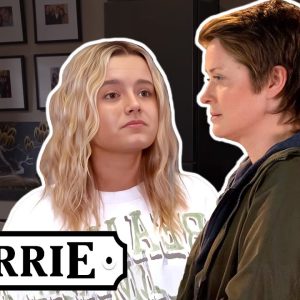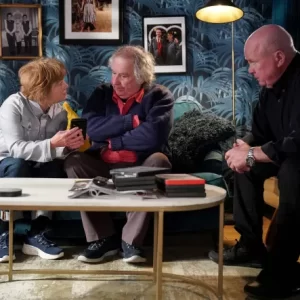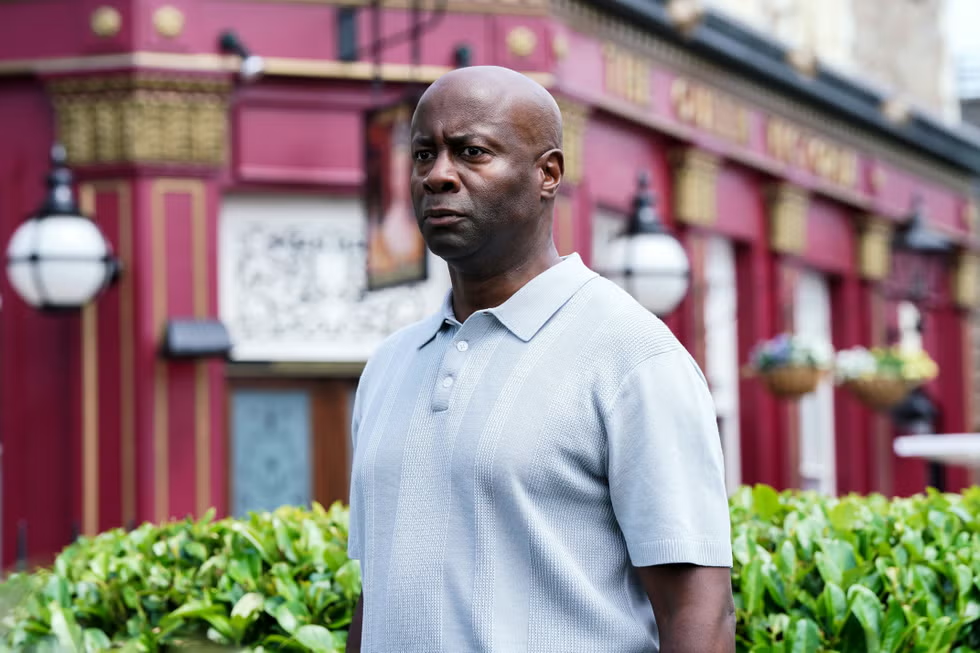The dust has finally settled in Taylor Sheridan’s intense 1923 finale, and while the Duttons may have captured most of the spotlight throughout the season, it was Banner Creighton, the misunderstood Scottish sheepherder, who delivered the emotional gut-punch no one saw coming. In a finale packed with chaos, sacrifice, and reckoning, Banner’s journey from vengeful villain to tragic antihero didn’t just compete with the Duttons’ legacy—it outshined it. Let’s unpack how this controversial character stole the show and left fans reeling. 🐑🔥
The Most Unexpected Hero: Banner’s Transformation Begins 🌀
At the beginning of 1923, few could’ve predicted that Banner Creighton, portrayed by Game of Thrones alum Jerome Flynn, would become the emotional core of the series. Introduced as an aggressive antagonist to the Duttons, Banner’s initial motives seemed simple—power, revenge, and survival. But Sheridan layered his character with complexity, and in the final hour, Banner’s transformation from a bitter enemy to a sacrificial protector gave the show its true climax.
Let’s not forget, Banner wasn’t born a villain. He was a struggling immigrant trying to provide for his family. When he was publicly humiliated by the Duttons—left hanging with a noose around his neck in a brutal power play—his anger felt more than justified. The incident planted the seeds of vengeance. And so, in desperation and pride, he aligned himself with the calculating and cruel Donald Whitfield, hoping to secure stability.
But sometimes, the devil you make a deal with drags you deeper than you ever intended to go…
Whitfield’s Monster Revealed – And Banner’s Humanity With It 👿💔
Teaming up with Whitfield came at a soul-crushing cost. While the business tycoon appeared to be a strategic partner, Whitfield’s moral decay soon became apparent. His cold, methodical cruelty—especially toward women—forced Banner to confront the monster he had partnered with.
One of the most haunting scenes of the finale? Banner silently burying Christy, one of Whitfield’s murdered victims. There was no dialogue, no music—just Banner’s devastated expression. He didn’t look like a villain. He looked like a broken man. A man who had wandered too far into the darkness and was finally seeing the damage.
This moment stripped away all preconceived notions of Banner as a mere antagonist. It reminded us: sometimes the greatest villains are those who never started out that way, but were shaped by desperation and betrayal.
A Final Act of Redemption – And Sacrifice 🕊️🔫
In a move that shocked even longtime viewers, Banner made the ultimate sacrifice in the finale.
With his family prepared to leave Montana behind forever, Banner was intercepted by none other than Jacob Dutton. But instead of threats or revenge, Jacob offered something unexpected: a chance to end the war. It was a rare moment of mutual respect—two patriarchs tired of the bloodshed, finally understanding each other.
Banner agreed. But it wasn’t just about stopping the feud—it was about protecting his family one last time.
In a twist that had fans shouting at their screens, Banner helped save Jacob’s life, shooting Clyde before he could assassinate the Dutton patriarch. Yet, in the crossfire that followed, Banner was accidentally shot by the sheriff. His final moments were bittersweet—lying in Jacob’s arms, his eyes fixed on a better future he would never see.
Jacob, moved by Banner’s sacrifice, promised to ensure his family’s safe passage to Portland. And with that, Banner Creighton’s tumultuous journey came to a close.

Villain or Victim? Sheridan’s Masterstroke 🎭🔥
Banner’s arc is everything a great redemption story should be: messy, complicated, and emotionally charged. He wasn’t a perfect man—but neither was he the heartless enemy we once thought. In many ways, Banner was a victim of circumstance: an immigrant crushed beneath the weight of pride, survival, and betrayal.
He didn’t get a grand speech or a happy ending. But in the end, he died doing what the Duttons have always claimed to do—protecting family at all costs. His journey reminded us that even the most flawed characters can find redemption in their final act.
Did Banner Outshine the Duttons? 😲🔥
Let’s be honest—the Duttons had a powerhouse season. From Spencer’s harrowing journey back to Montana to Cara’s unwavering strength, the family continued to embody the grit and resilience of the Yellowstone legacy.
But Banner’s storyline had something different: depth, vulnerability, and true transformation.
While the Duttons stood tall in the face of external threats, Banner changed. His story wasn’t about reclaiming land or preserving legacy—it was about a man rediscovering his soul. And in the final moments of the series, it was his sacrifice, not the Duttons’ survival, that brought tears to viewers’ eyes.
The Fallout: What Happens Next? 🕊️🌄
With Banner gone and the war with Whitfield reaching its boiling point, the question remains—what happens now?
-
Will the Duttons honor Banner’s sacrifice?
-
Can Whitfield be brought down without Banner’s insider knowledge?
-
And most importantly—will the Creighton family finally find peace away from the blood-soaked soil of Montana?
Sheridan may have closed the book on 1923, but Banner Creighton’s legacy is far from forgotten.
Final Thoughts: A Redemption Worth Remembering 💔🏔️
Banner Creighton didn’t ride off into the sunset. He didn’t get a hero’s welcome or the admiration of the town. But he got something more powerful: redemption.
In a show driven by land feuds, family loyalty, and brutal survival, it was Banner’s quiet, heartbreaking journey that left the most lasting impression. His character arc is a stark reminder that even in the harshest frontier, grace and humanity can bloom—if only briefly.
So yes, the Duttons may have won the battle. But Banner Creighton won our hearts.
And in the wild, unforgiving world of 1923, that just might be the greatest victory of all. 🐑🕊️🔥





